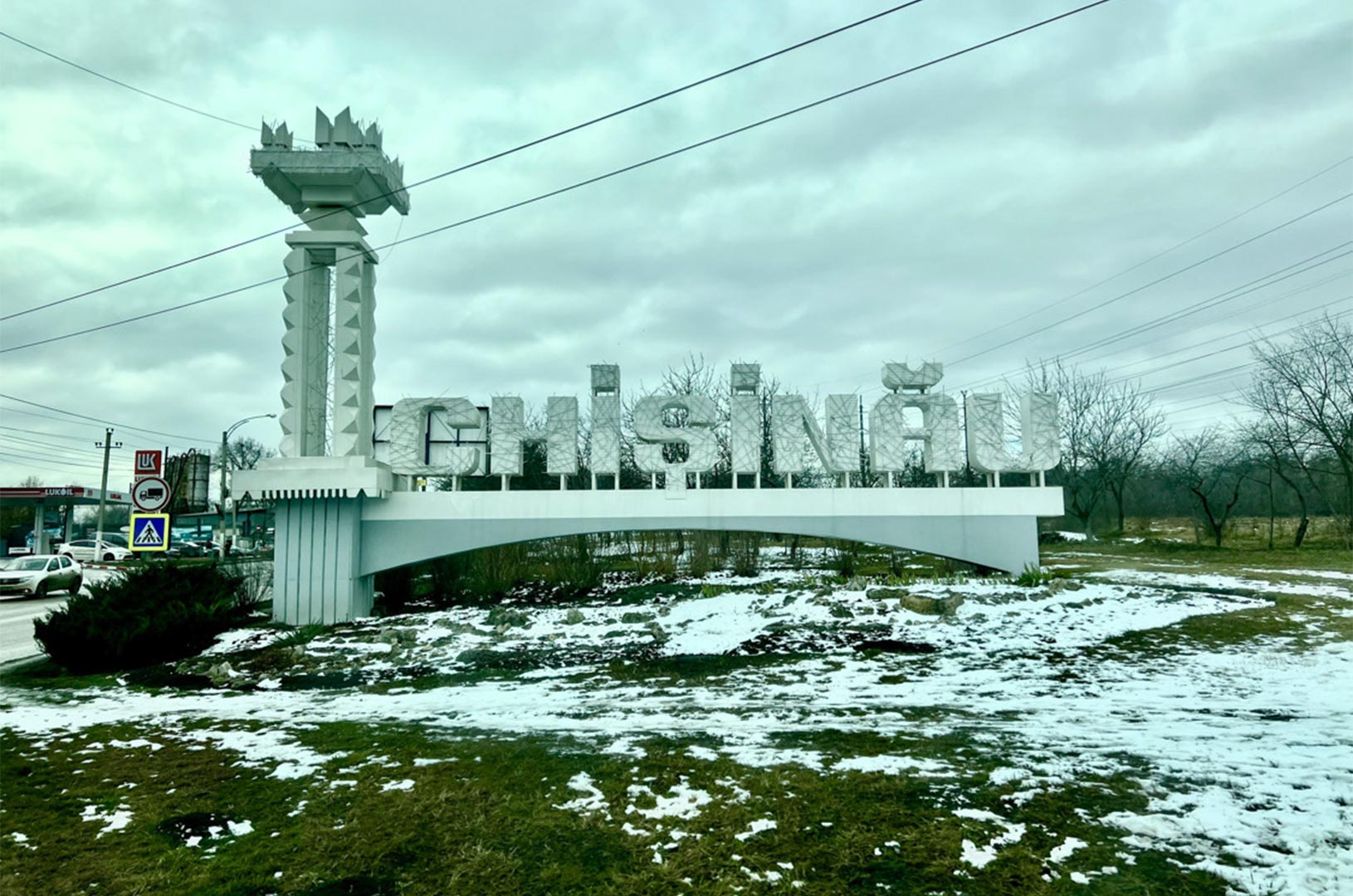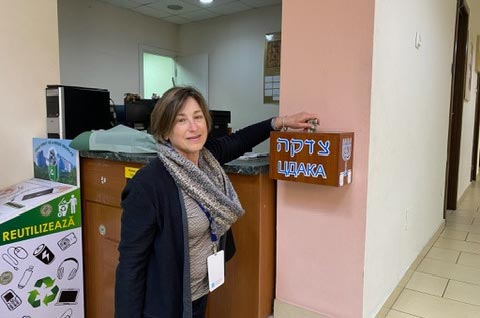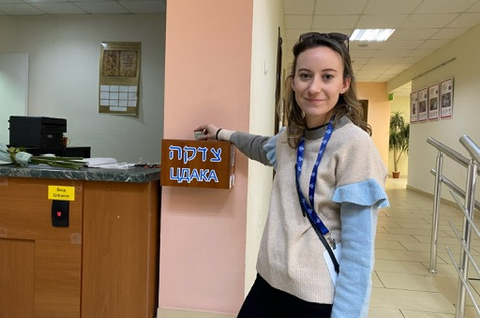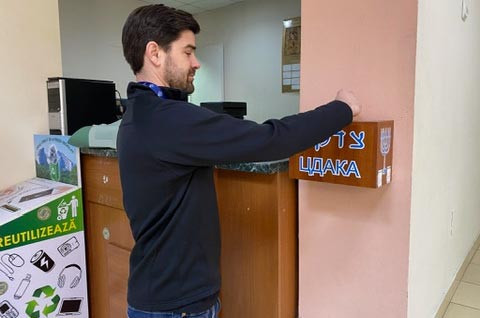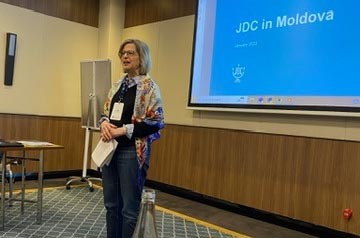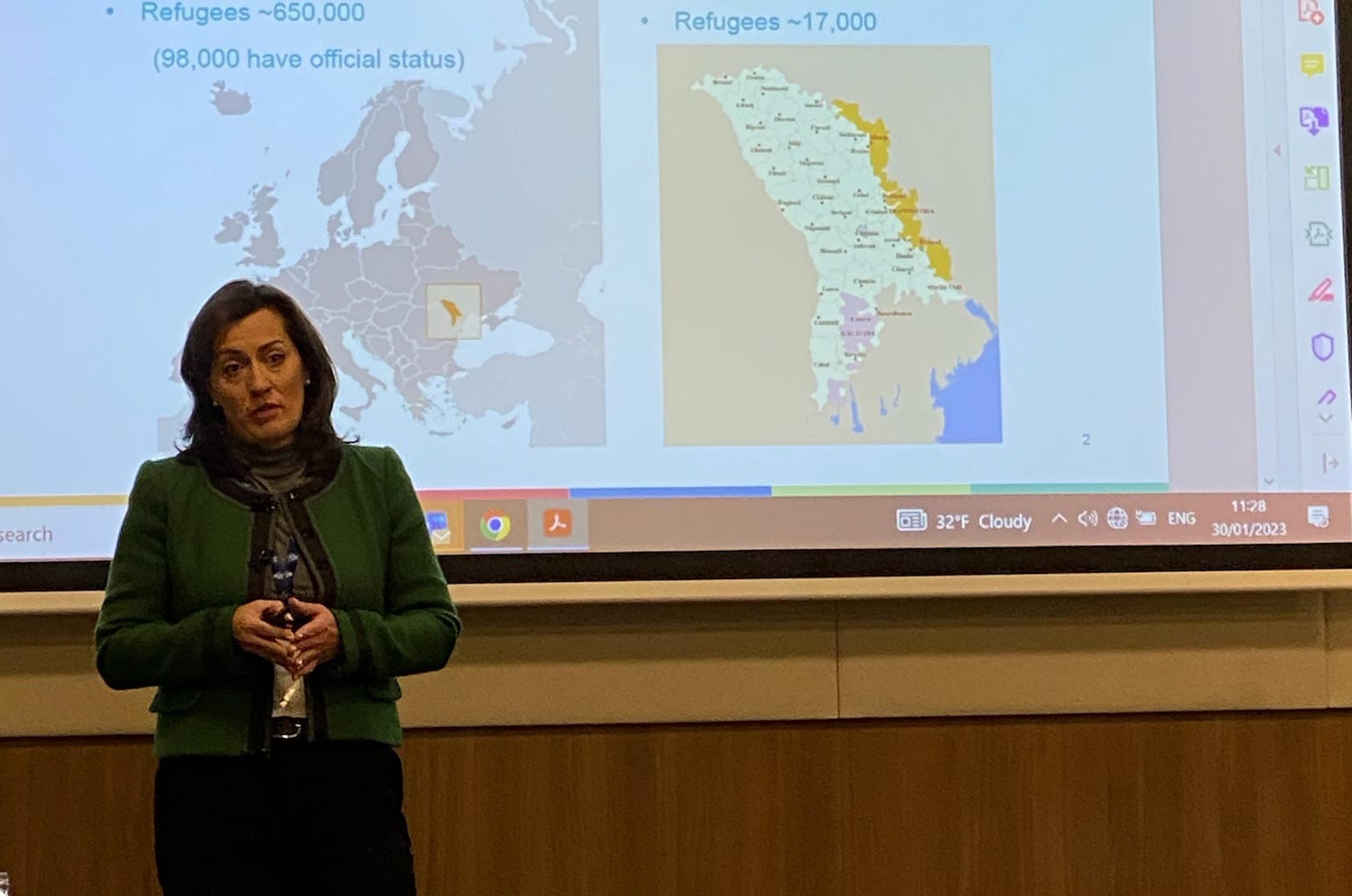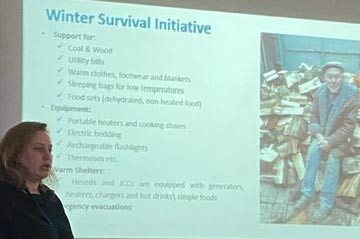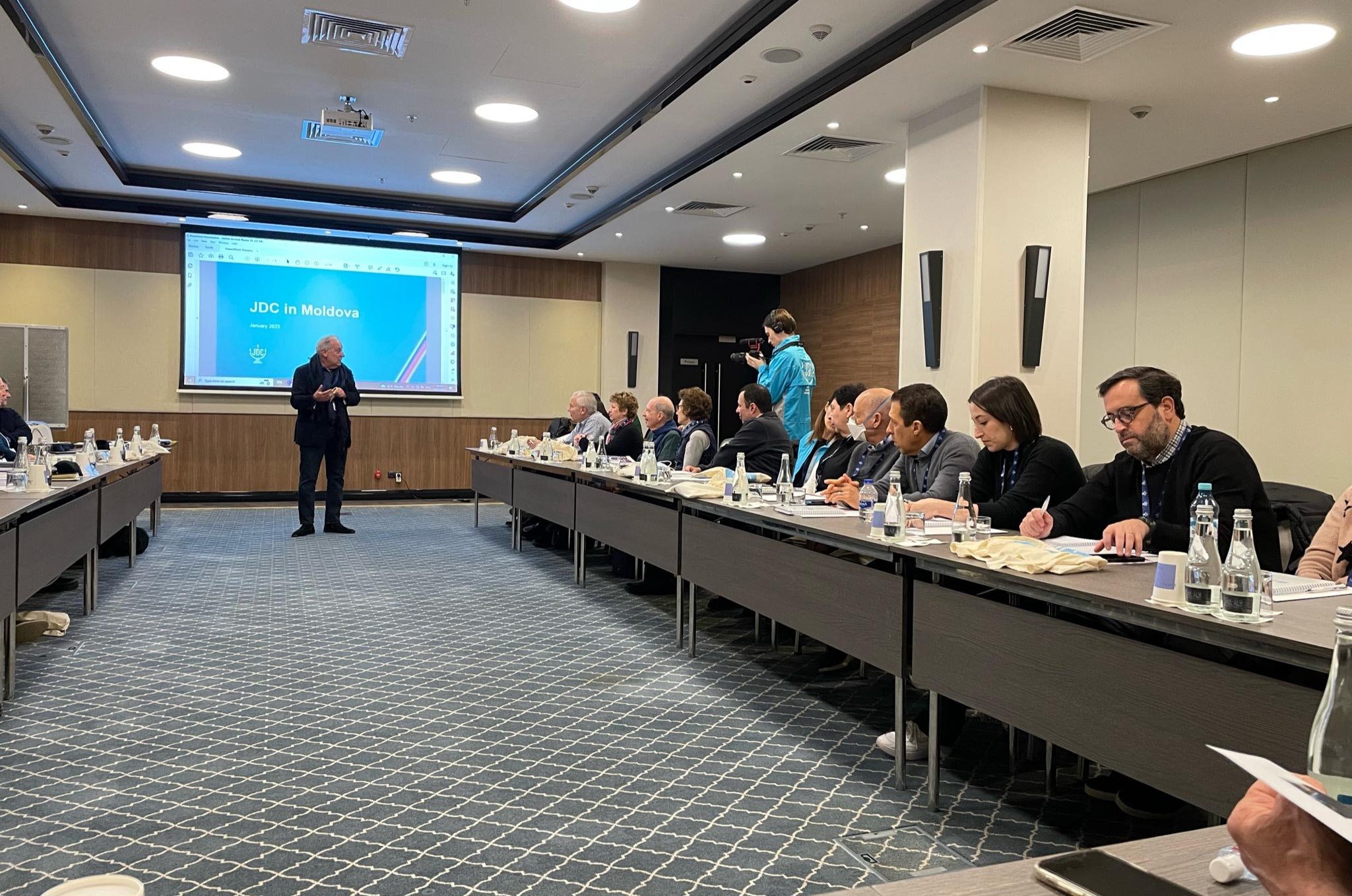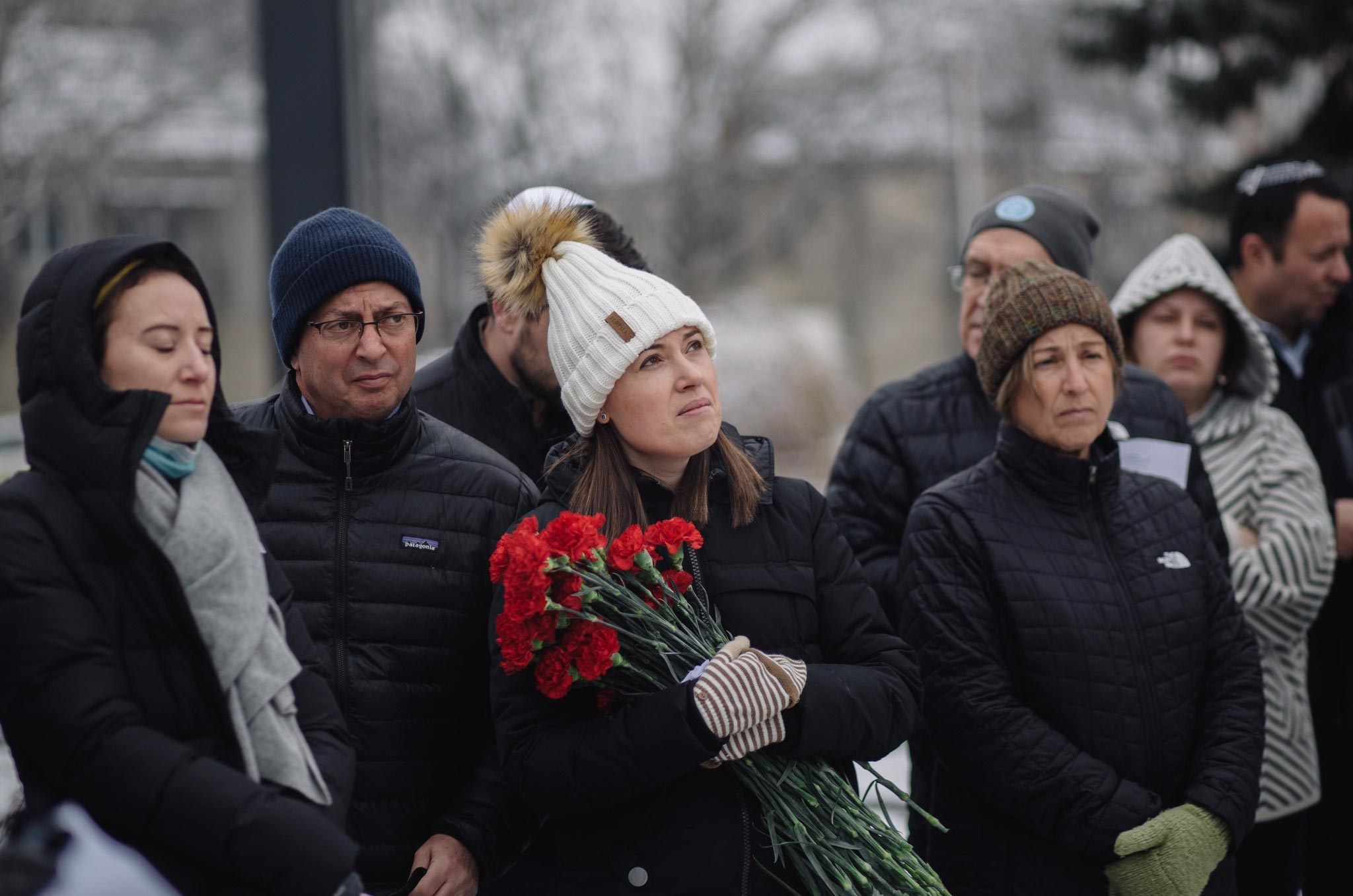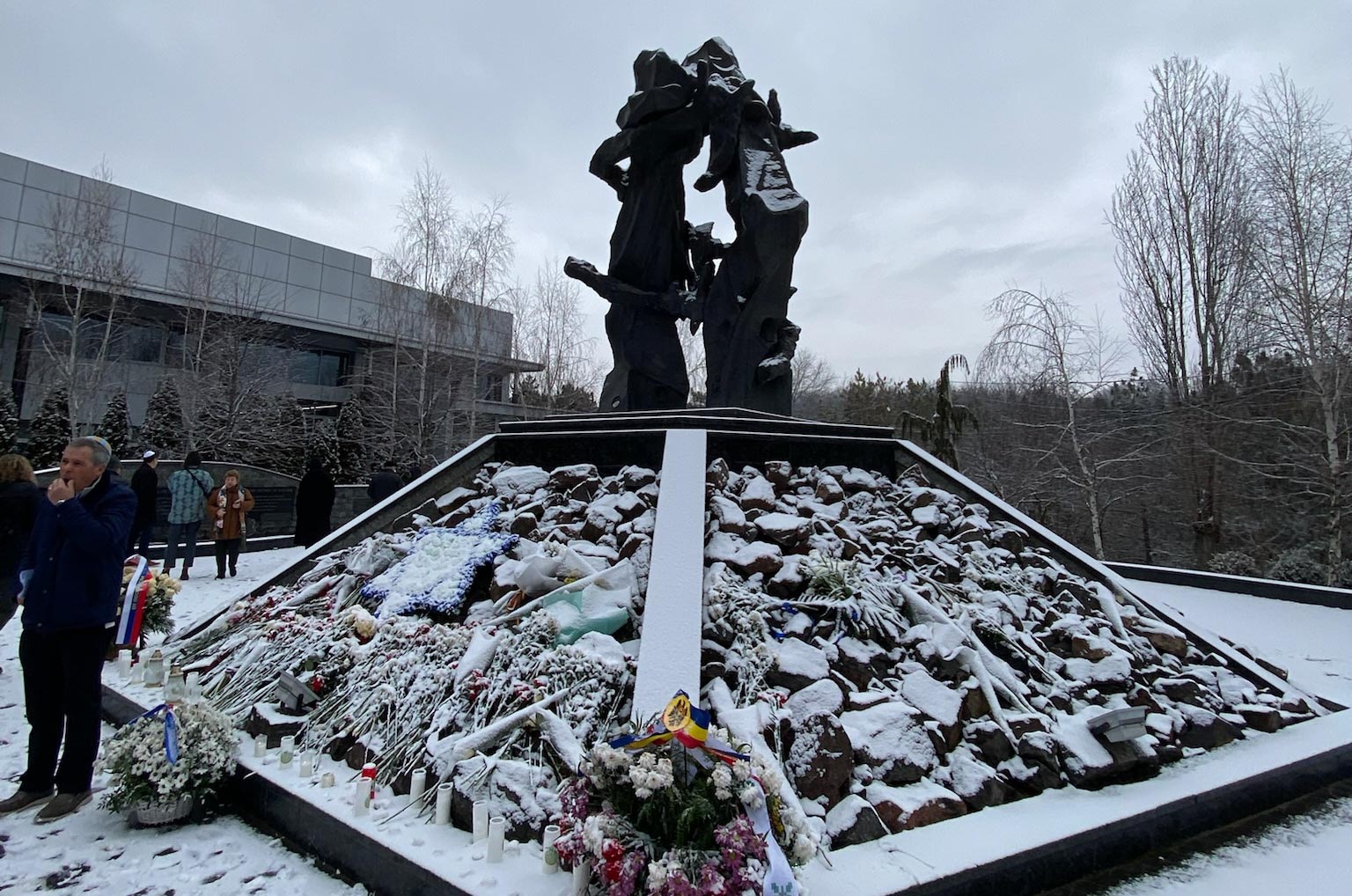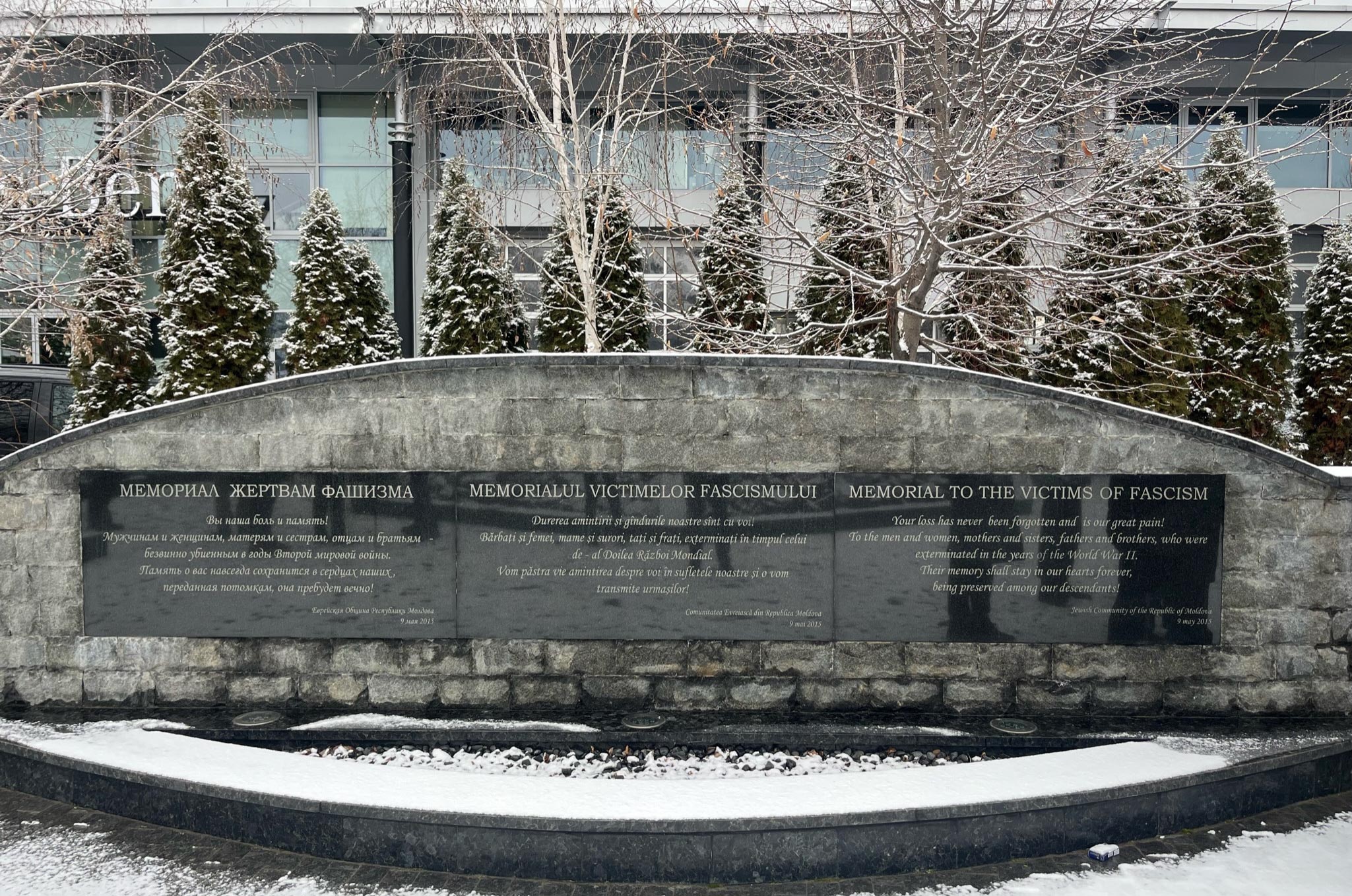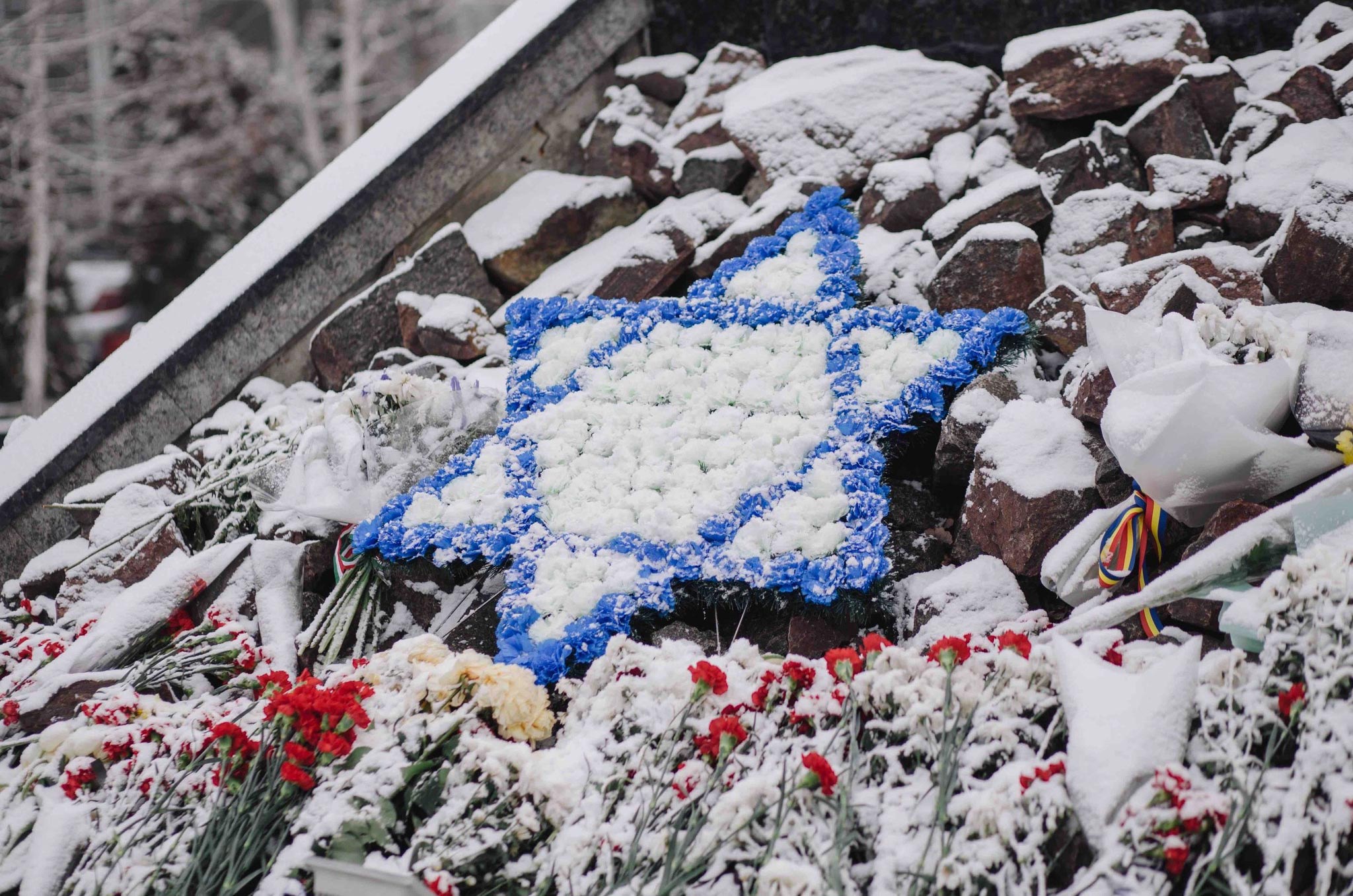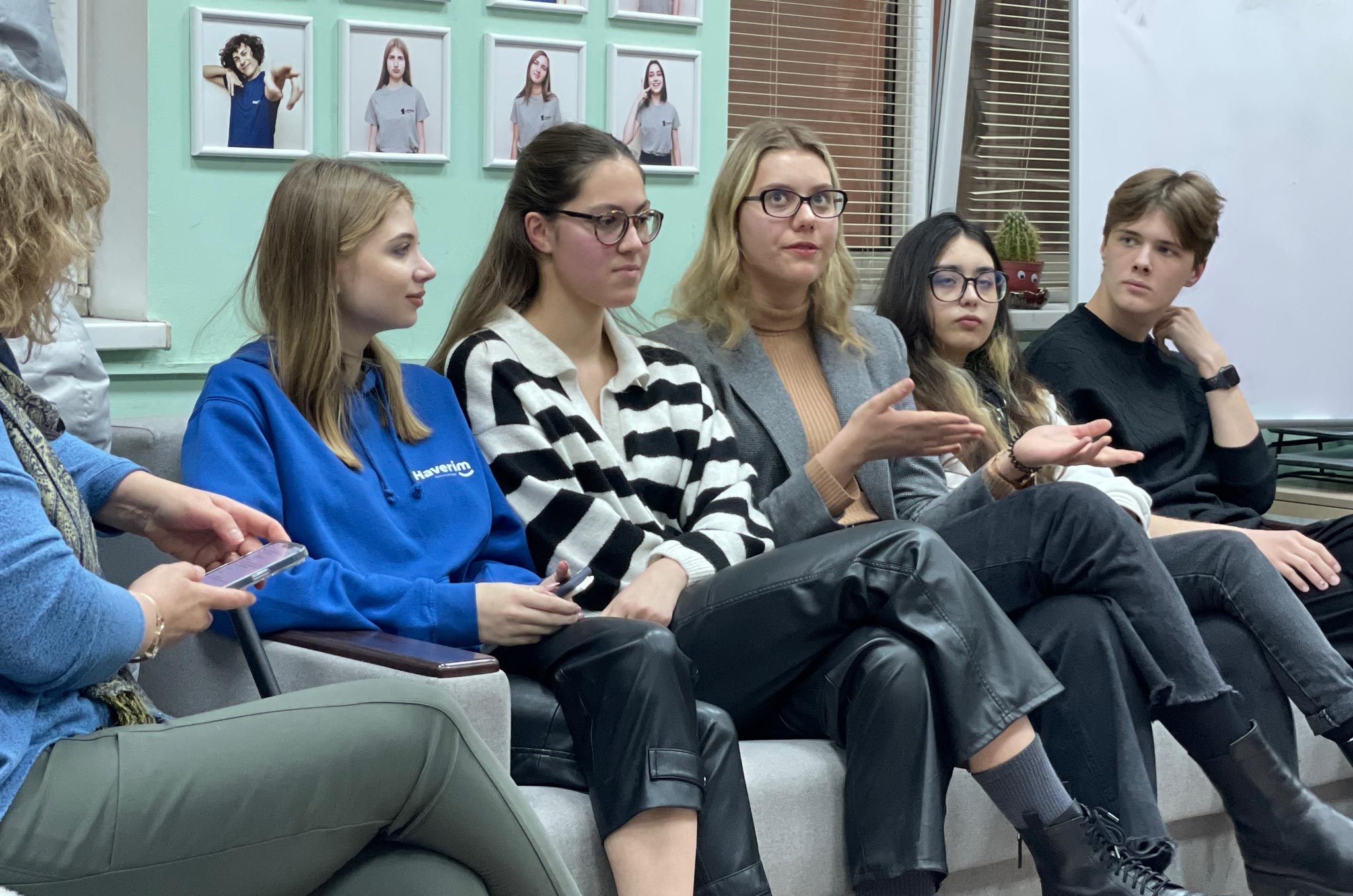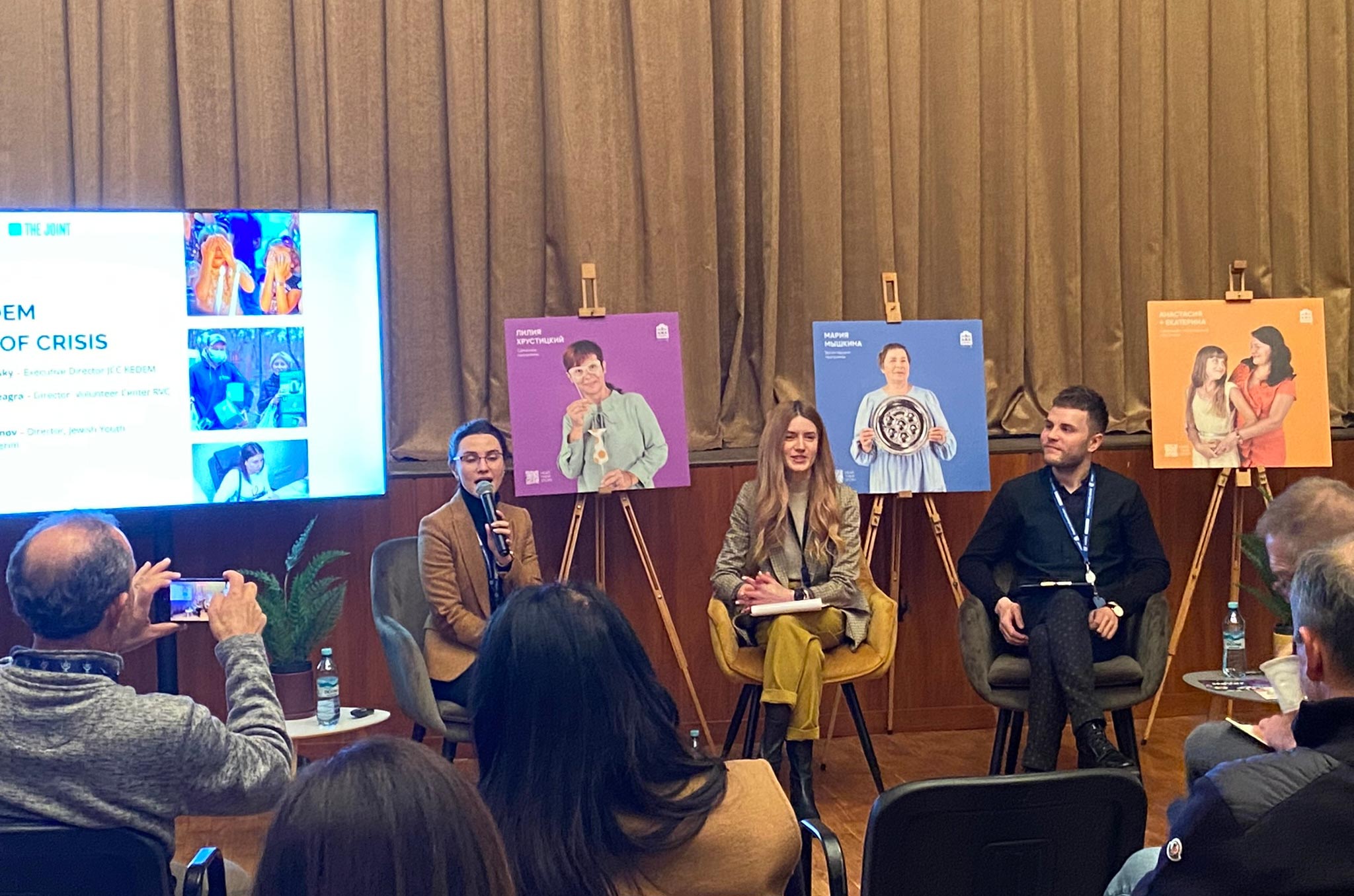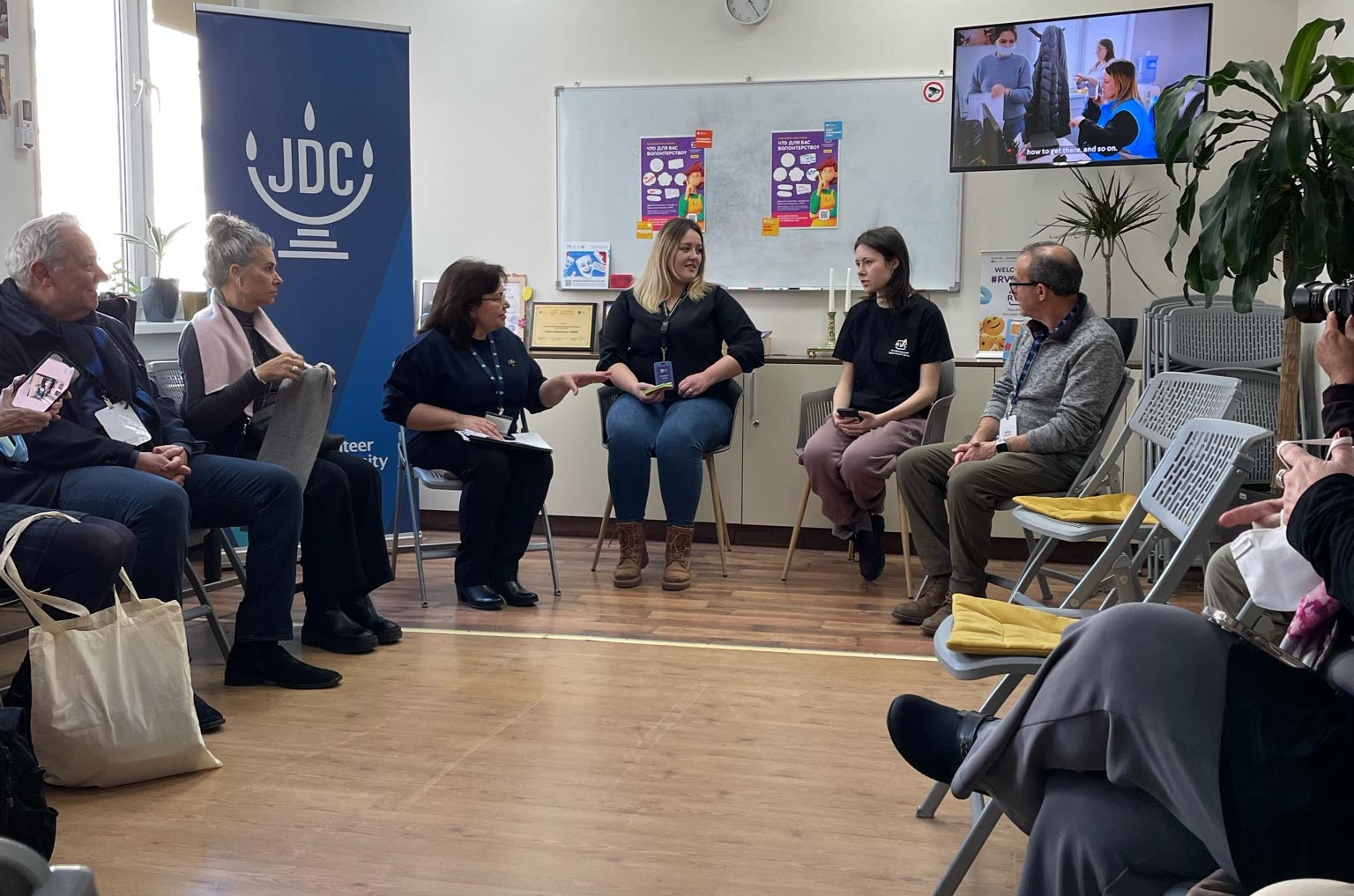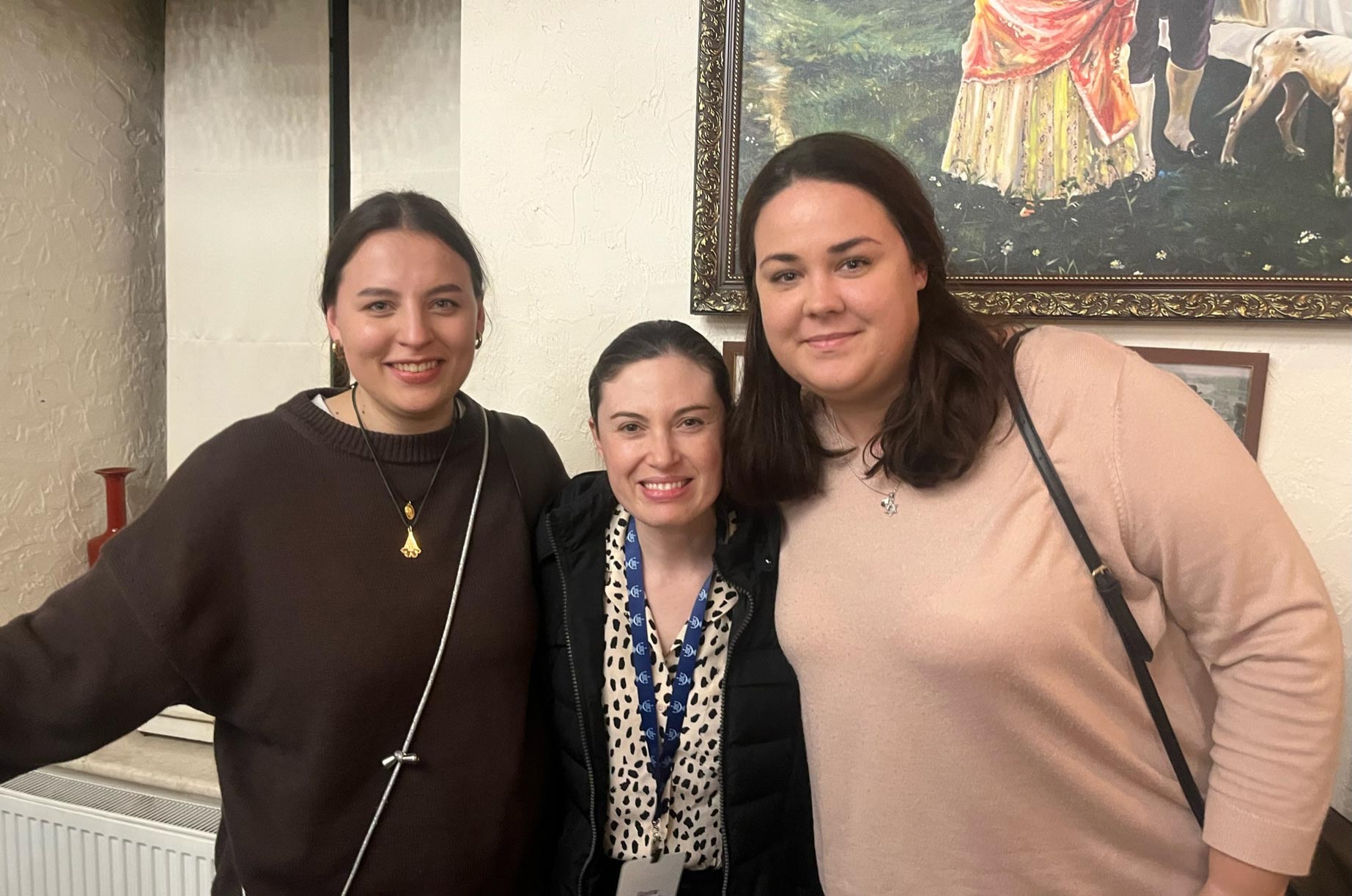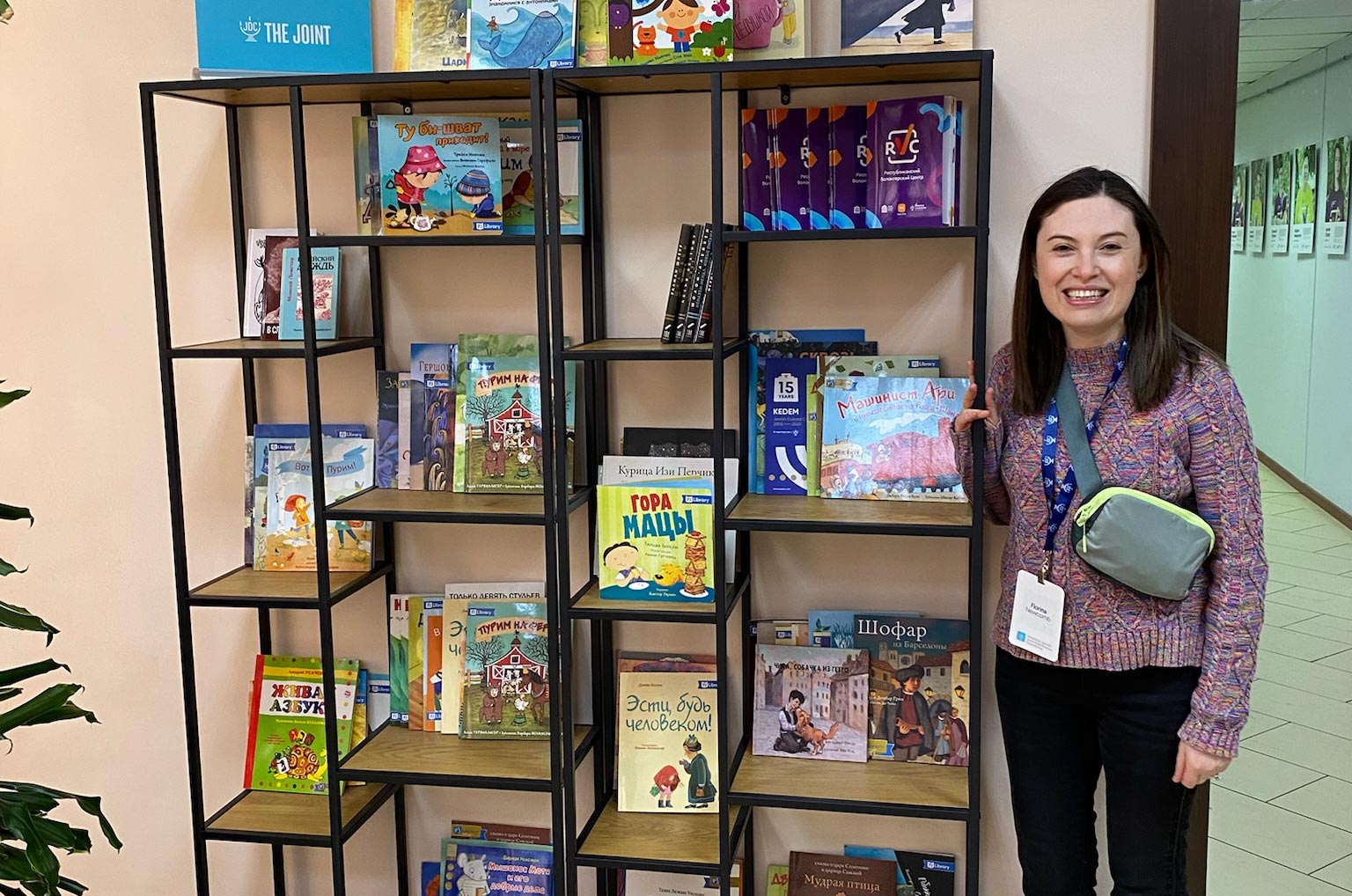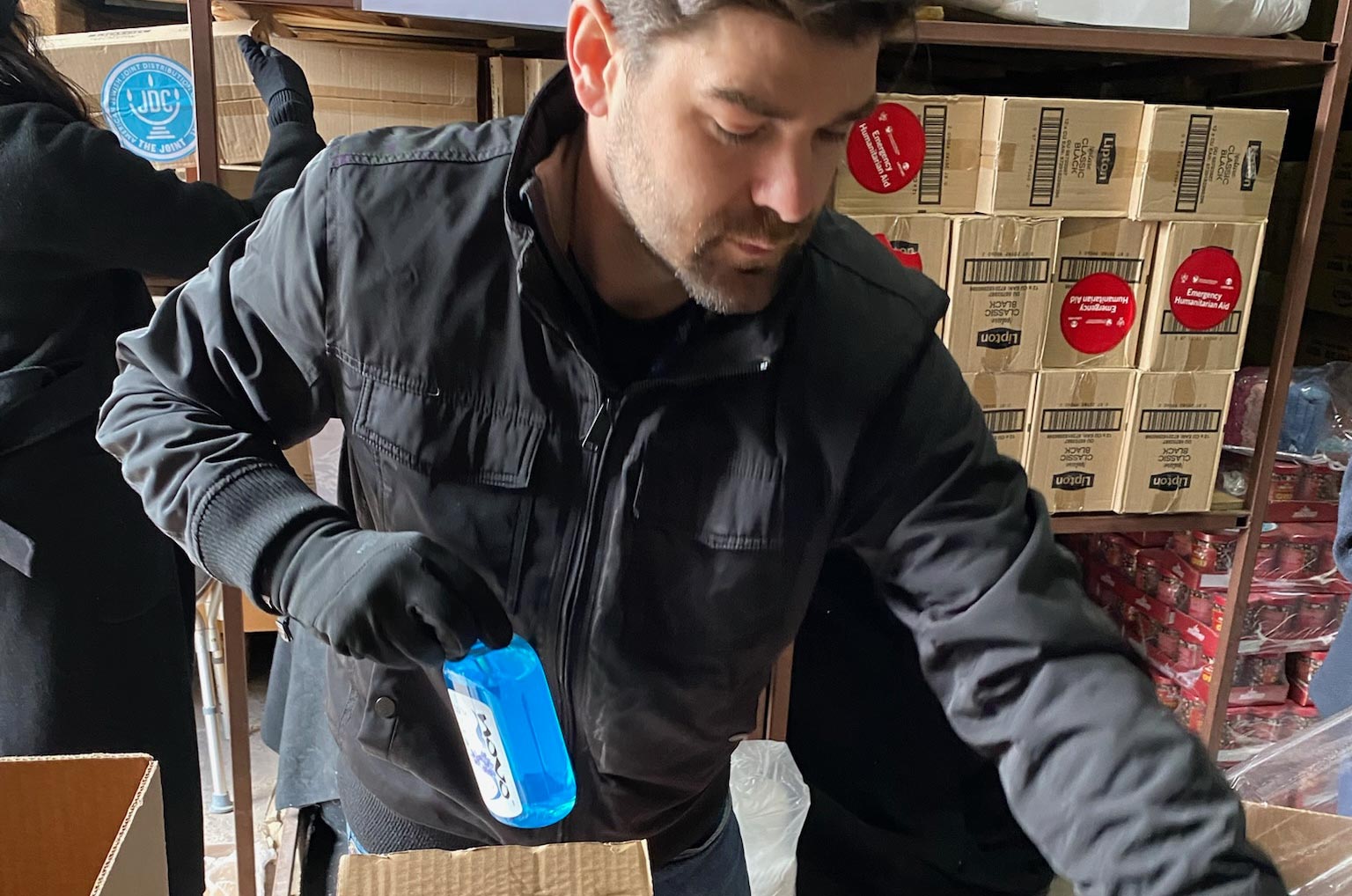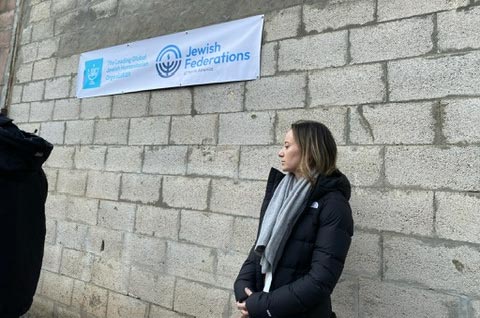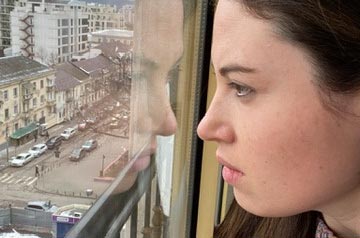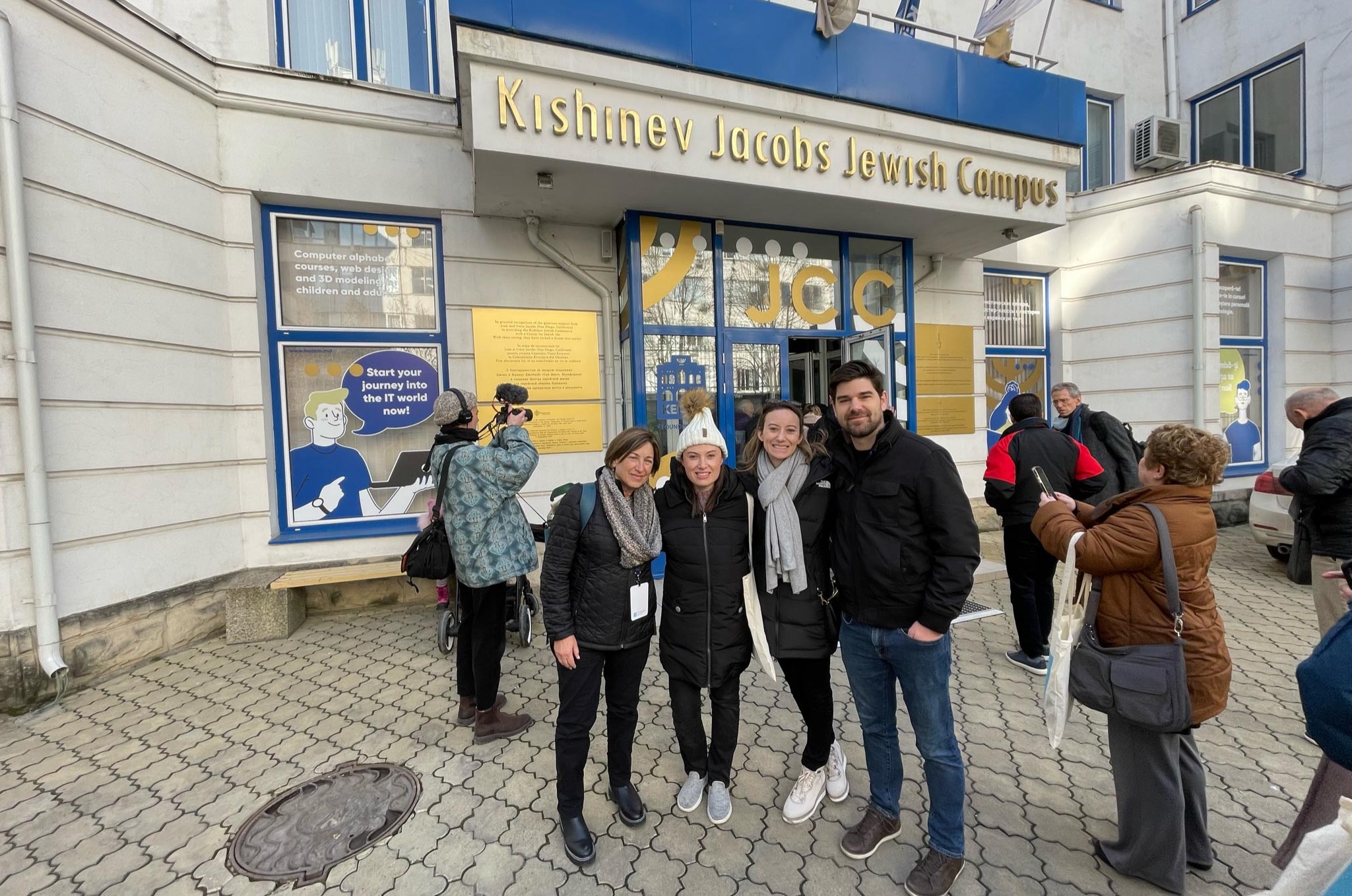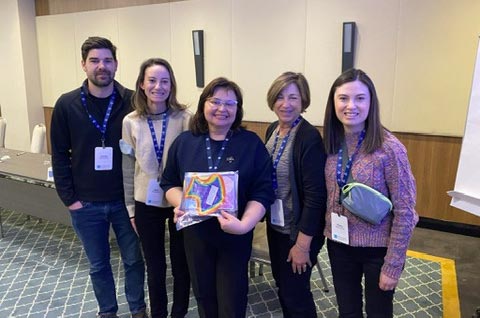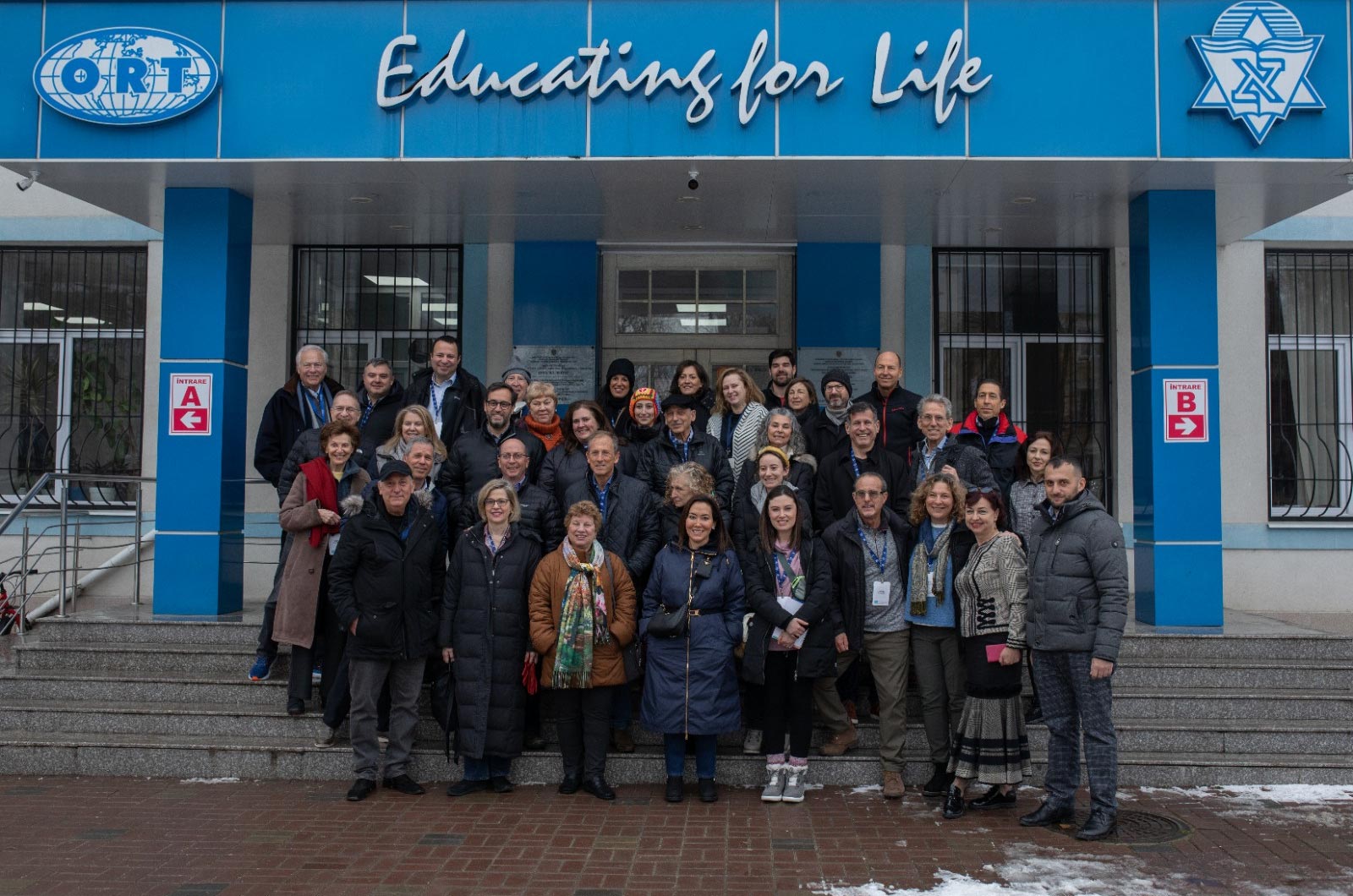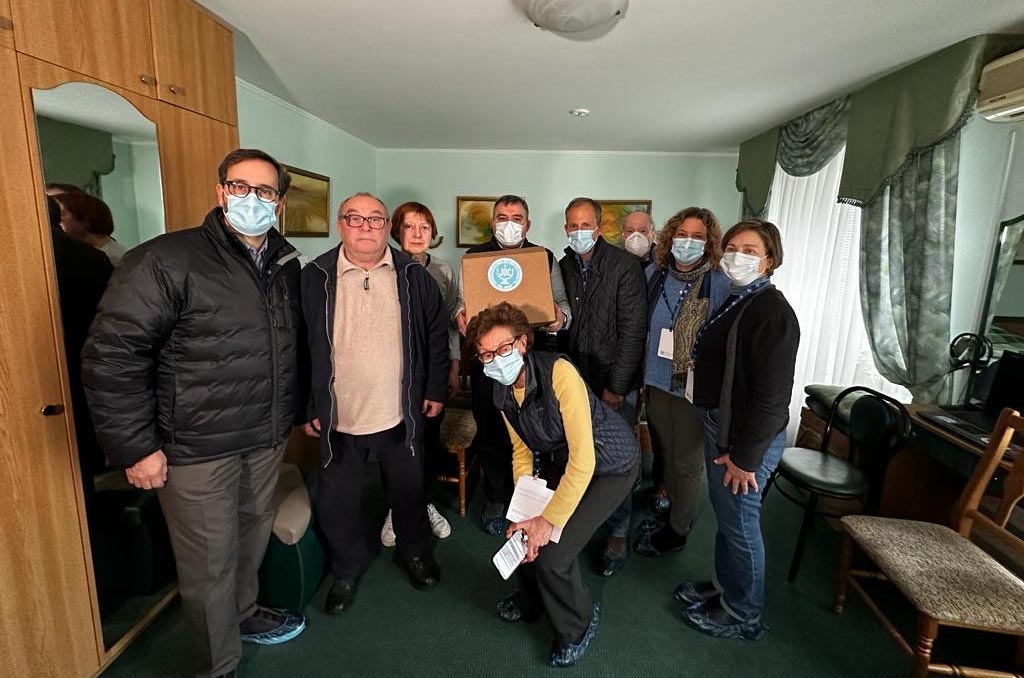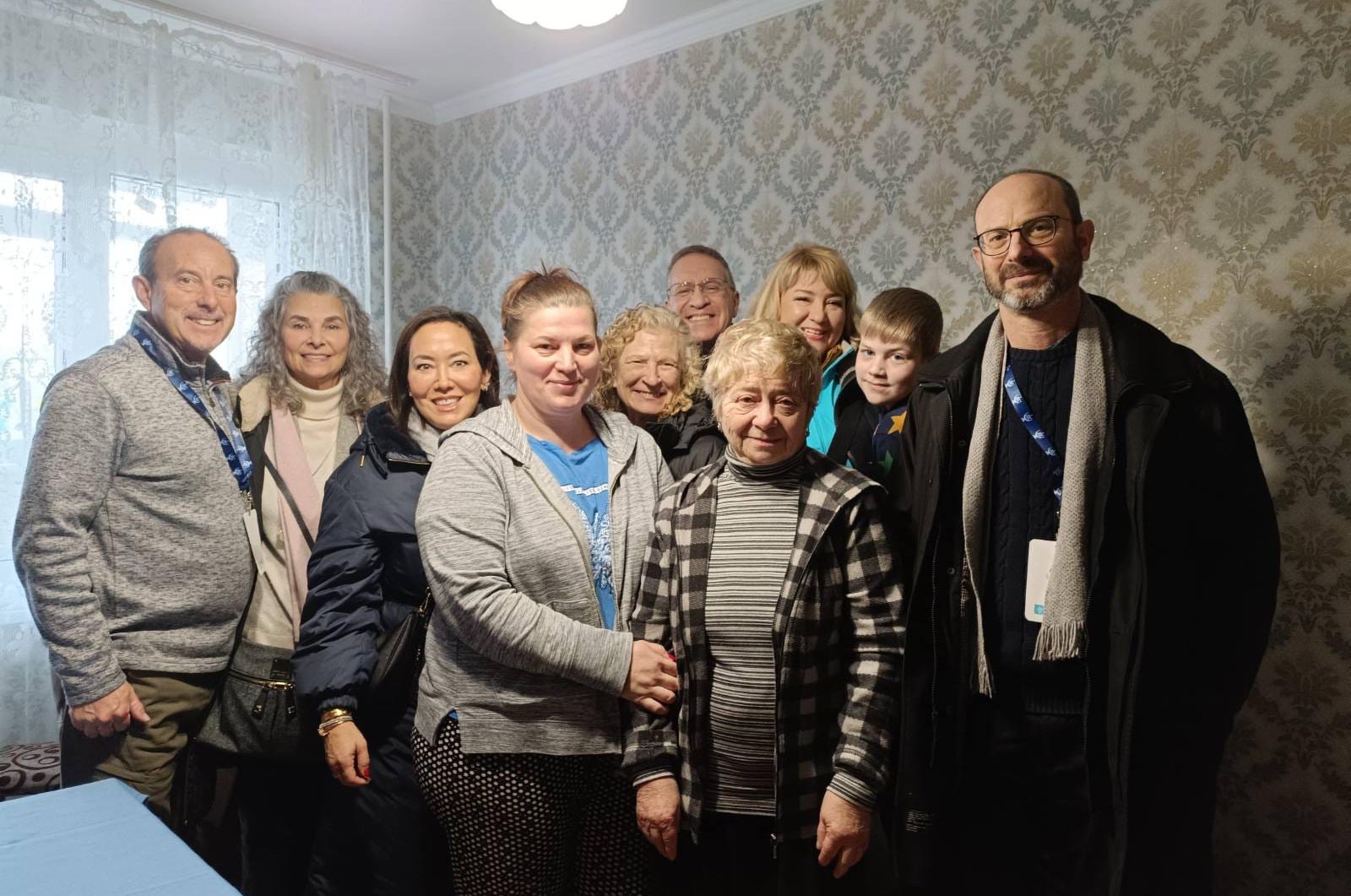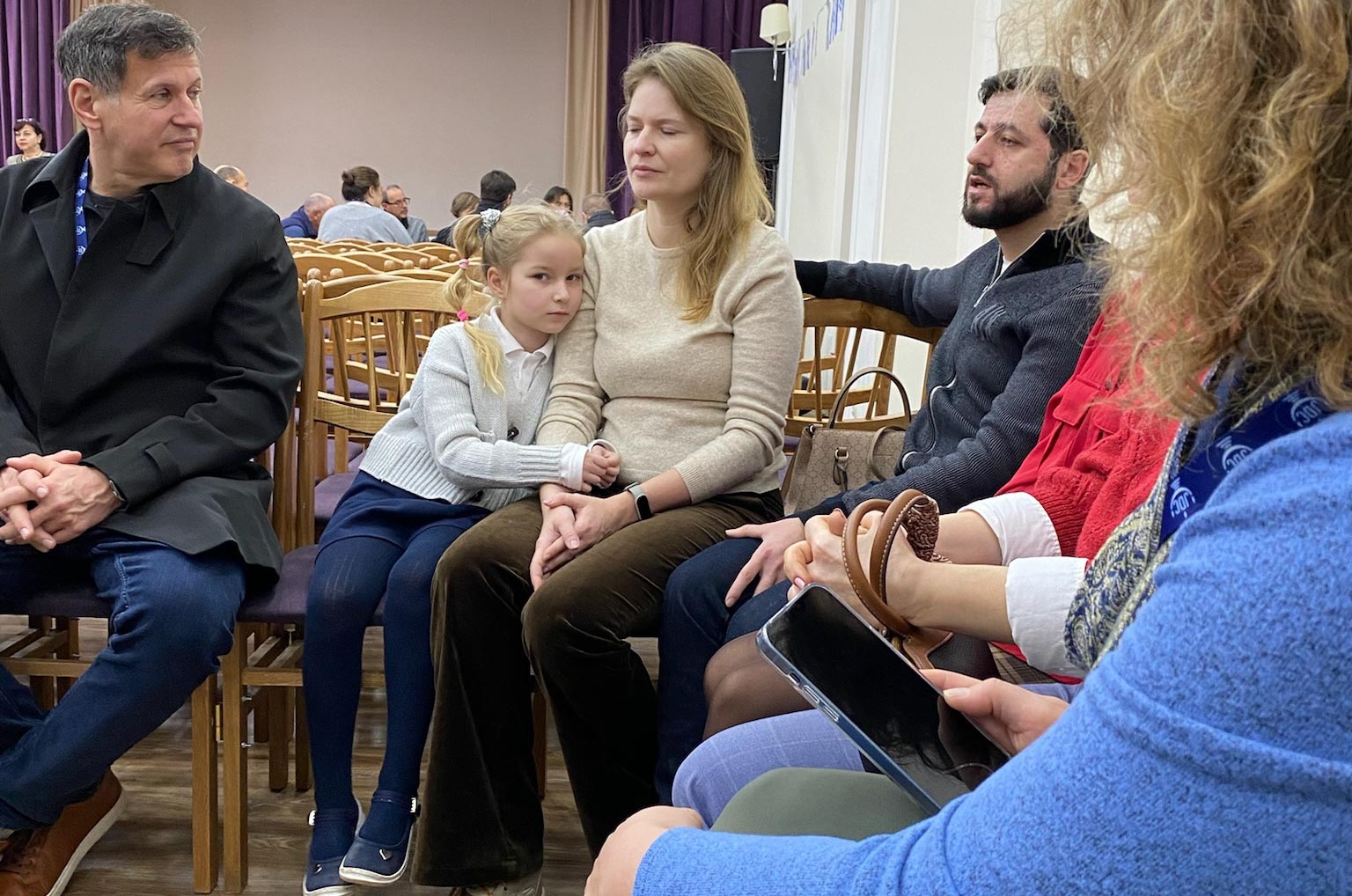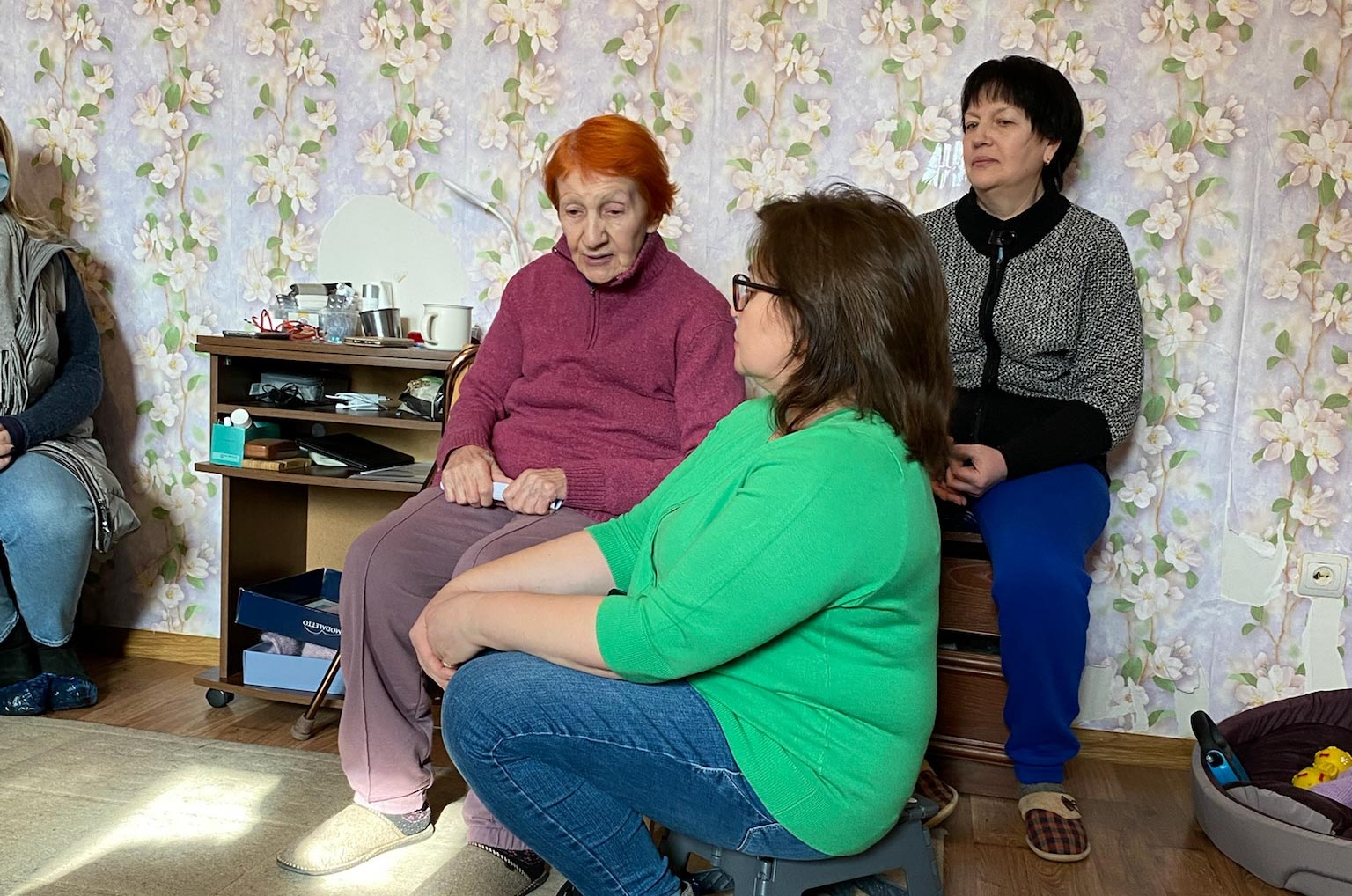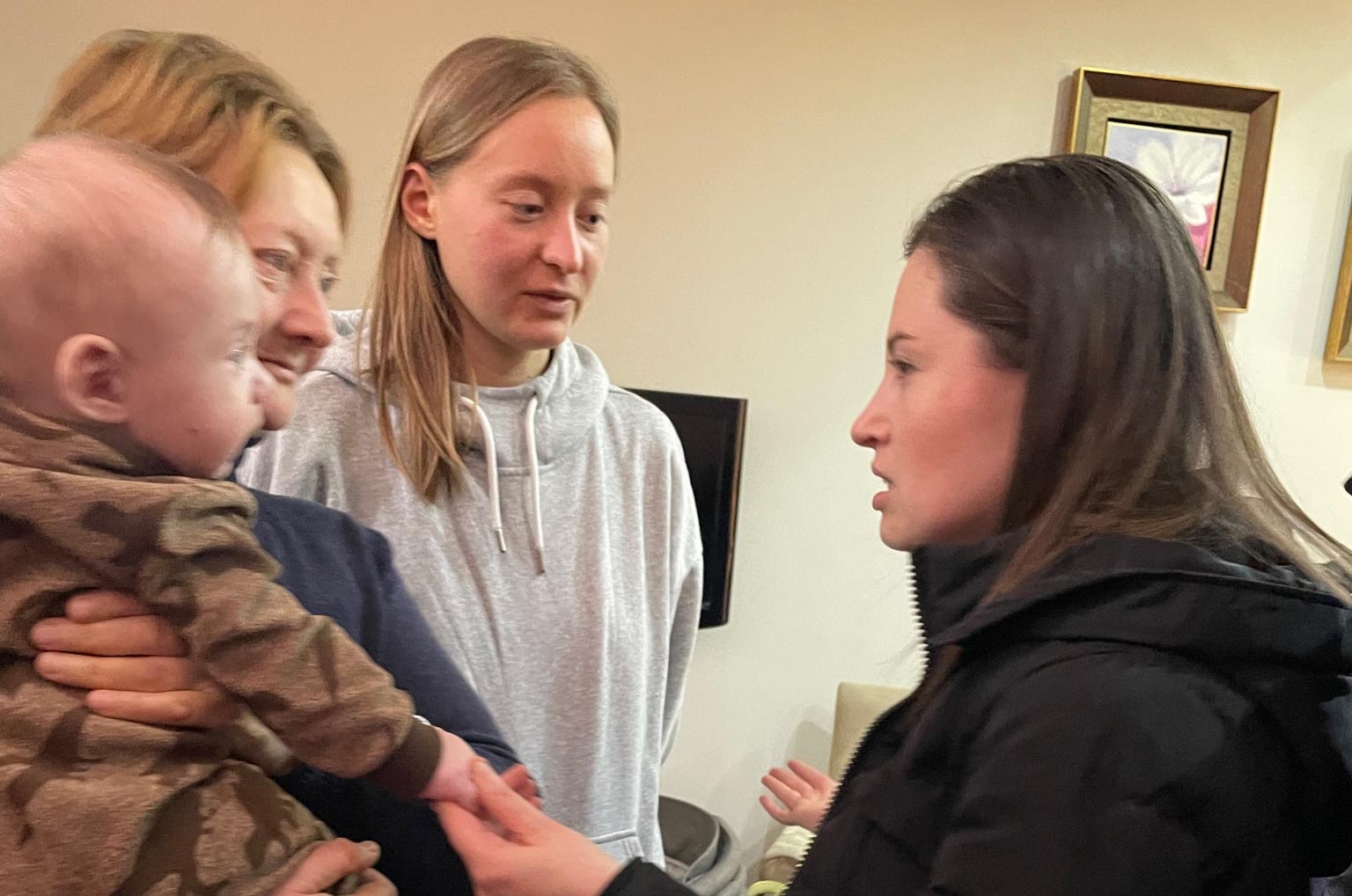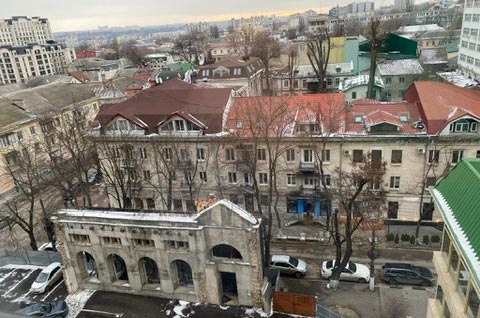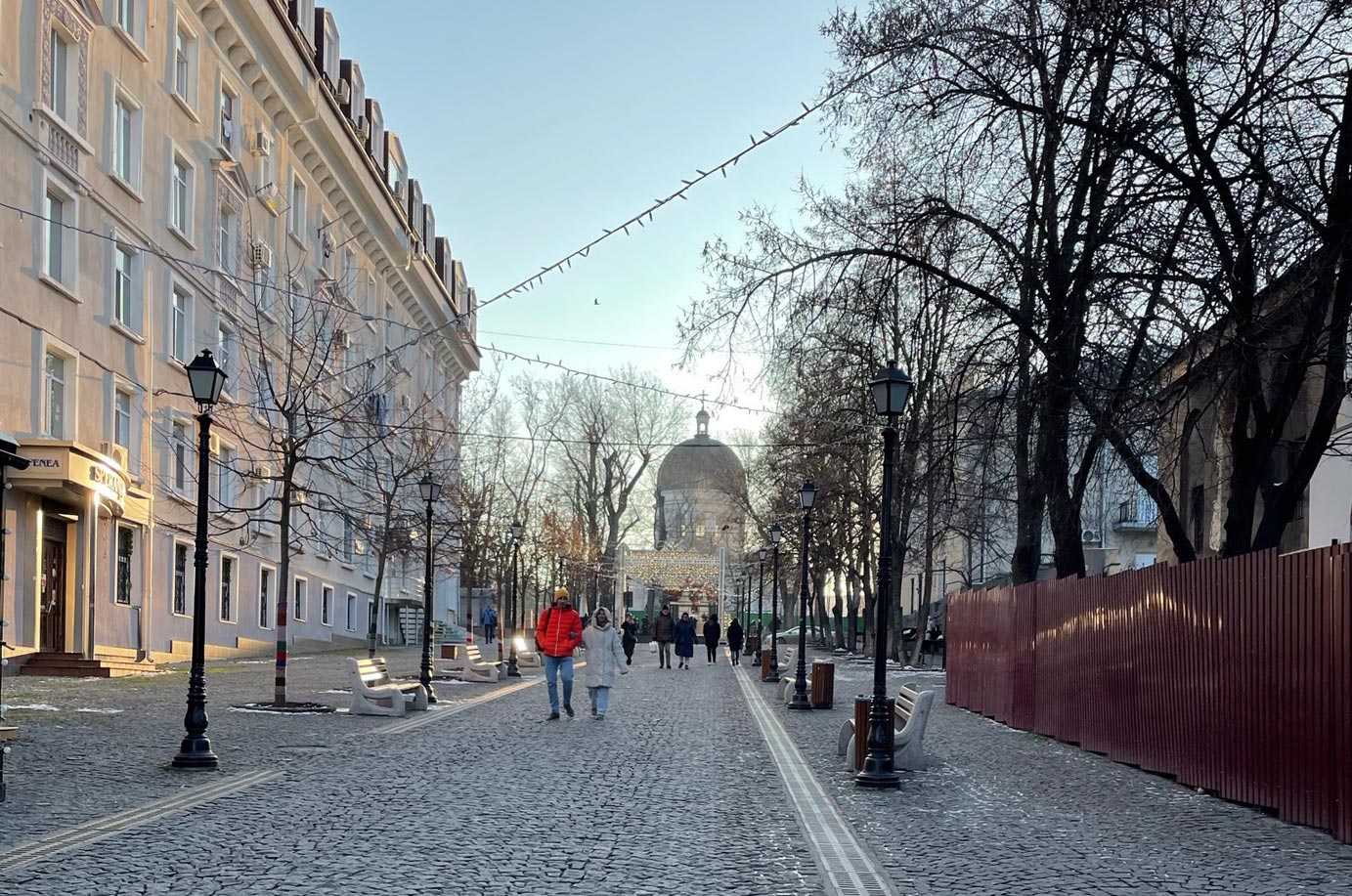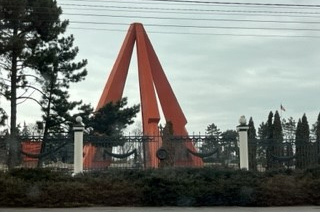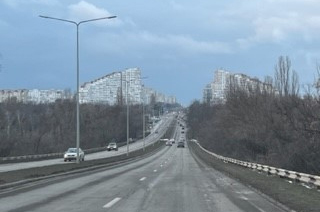JDC Fly-In Mission Trip
About the Trip
The BJF sent 4 members of our Jewish community on a Fly-In Mission Trip to Chisinau the capital city of the country of Moldova. This trip was facilitated by two organizations that work hand in hand with JFNA and JDC. Moldova is on the border with Ukraine and hundreds of thousands of Ukrainian refugees have been crossing over to find shelter and help in Moldova. The trip was staffed by BJF professional Florina Newcomb.
Florina’s Experience
Last week I along with 3 other members of our community were given the opportunity to join a Fly-In Mission Trip to Chisinau the capital city of the country of Moldova. This trip was facilitated by two organizations that work hand in hand: JFNA (Jewish Federations of North America, our parent organization) and JDC (the Jewish Joint Distribution Committee also lovingly called the Joint). Moldova is on the border with Ukraine and hundreds of thousands of Ukrainian refugees have been crossing over to find shelter and help in Moldova. The
other participants of the trip were Israel Connections Chair and longtime community volunteer Sheri Krell and two members of our Young Leadership cohort, Andrew Newcomb (who happens to be my husband) and Sarah Schaeffer. Another interesting piece of information to add is that I was born in Chisinau, Moldova, left with my family as refugees in the 80’s, and this was my first time going back to the country of my birth. But more on that later.
There is an old Ukrainian proverb that goes, “You don’t really see the world if you only look through your own window.” My hope is that through this briefing, you will have a better understanding of the plight of the Ukrainian Jews who are either fleeing the war or staying and fighting, the Moldovan Jews who are helping in every possible way, and the Jewish communities around the world, like ours that are trying to help from afar.
I wanted to start by giving you a little Geopolitical Context of Moldova.
Moldova was already one of the poorest countries in Europe before it was hit by a series of unanticipated recent challenges: a severe drought that reduced agricultural production by 34% in 2020, COVID-19, and skyrocketing inflation that pushed gas prices by more than 500% – and now, the crisis in Ukraine.
Moldova is one of the countries most affected by the military action in Ukraine, not only because of its physical proximity but also because of its inherent vulnerabilities as a small, landlocked economy with close linkages to both Ukraine and Russia. Additionally, Moldova continues to be critically reliant on natural gas imported from Russia.
The influx of refugees to Moldova has resulted in additional fiscal costs, squeezing resources. The large wave of refugees has also created a challenging socioeconomic environment when many immigrants remain but fail to find employment opportunities.
Now I would like to turn to The crisis in Ukraine and JDC’s Response
Ukraine’s vibrant Jewish community is one of the largest in the world, home to an estimated 200,000 Jews prior to the current crisis. Since the collapse of communism, JDC has worked across the former Soviet Union (FSU) to save Jewish lives and build Jewish life. In Ukraine alone, JDC has been serving an estimated 42,000+ Jewish elderly and 2,500 poor Jewish children and their families through their network of care services, Jewish community programs, and Jewish leaders.
The events of February 24, 2022, were the beginning of an unimaginable nightmare for millions of people in Ukraine. Many fled their homes in terror, carrying only what they could hold in their hands. Millions more remained in the conflict zone, too frail to escape others afraid to leave everything they had ever known.
JDC immediately sprang into action with an emergency response. Building on decades of investment in the FSU, they leveraged their experience, relationships, and committed staff to effectively come to the aid of Jews under fire.
For those still in Ukraine, for refugees in neighboring countries, and for those looking to evacuate, JDC is:
Providing vital necessities like food and medicine, in addition to trauma support and winter relief aid, such as portable heaters and cooking stoves; sleeping bags that can withstand subzero temps; rechargeable flashlights, and nonperishable foods, warm blankets and fleece-lined clothing; wood and coal, and subsidies for higher utility bills.
Addressing the needs of Ukraine’s “new poor,” resulting from skyrocketing inflation and diminished employment opportunities.
Supporting the Jewish community and providing a connection through continued programming and volunteer work.
Operating emergency hotlines in collaboration with local Jewish communities in Ukraine, Bulgaria, Poland, Moldova, Germany, Hungary, Israel, Romania, Estonia, Latvia, and Slovakia.
Staffing key border crossings along with European community partners and volunteers to embrace, inform, and assist refugees arriving in Poland, Moldova, Hungary, and Romania, while also working to coordinate shelter and home hospitality.
Arranging special medical transport for those elderly Jews who are unable to make the journey out of Ukraine using standard vehicles.
JDC has provided assistance to over 17,000 Jewish refugees from Ukraine, including over 7,000 children. 15,300 beds have been secured in 3 hotels in Chisinau and its suburbs. In these facilities, refugees receive food, phycological and emotional trauma support, information, and other necessary aid. A total of 140 JDC volunteers including 71 Call Center (emergency hotline) volunteers handled thousands of calls. A special warehouse was established as a hub to collect and distribute humanitarian aid to Jews in Ukraine and Moldova.
Their Stories
We Jews, we help one another. And once again, we see Jews in need that need to be helped. On this journey to Moldova, I knew that the stories were going to be harrowing, but what I did not realize is the strength and perseverance of the Ukrainian refugees and the people that help them.
Ludmilla
We met with a woman named Ludmilla and her daughter Svetlana and baby grandson Adam. Svetlana’s husband, Stas, had to stay behind in Ukraine since most men cannot leave Ukraine and have to stay and fight. Svetlana had tears in her eyes, as she spoke about her husband and how much they worry about his safety. Ludmilla, Svetlana, and baby Adam have applied for permission to make Aliyah to Israel, and pending a few documents will be allowed to emigrate soon. Ludmilla told us how back in Ukraine years earlier when her husband passed away, she could not afford to care for her two children. She applied to JDC and received vital help through their Chesed center. This also meant that when Svetlana was a child, she was able to go to a Jewish preschool, Jewish Day School, and then once grown, to a Jewish university where she majored in Psychology and Jewish Studies. She wants to build a new life for herself and her son in Israel because she says that Israel is her second home. Being able to participate in Jewish life in Ukraine was key to her family’s survival, but also provided a connection to her Judaism that Jews were not allowed to have under Soviet rule. Svetlana, her husband, and many young people are being brought up to embrace their religion and love for Israel. Ludmilla and Svetlana were so thankful to have had the help that they received. JDC has helped them in a multitude of ways while living in Ukraine, but also provided life-saving support to them as they fled the war. They are currently living in a JDC-sponsored hotel, receiving food, clothes, medicine, and aid in applying for their visa. I know for a fact that the diapers that our group brought over donated by our community were given to baby Adam and that warms my heart.
Christina
We met with a woman named Christina and her 3.5-year-old daughter Tatyana. They both fled Odesa when the crisis broke out. Christina’s husband was unable to leave Ukraine and is currently at the front. Christina’s parents also remained in Ukraine, unable to leave the only home they’ve known. But conditions are too harsh for a young child. Even in quieter times, constant power outages have left people without heat in a bitter winter. Christina and Tatyana are also awaiting documents to make Aliyah to Israel. In the meantime, they receive humanitarian aid from the JDC including monthly financial assistance, heating stipends, school supplies, and food packages. Tatyana has started a preschool and although Christina would like to find work, it is not easy because she does not speak Romanian.
Little Tatyana is such a sweetheart. As our group approached her and her mother, she ran up to us and gave me a giant hug. I asked if she and her mother lived here (meaning the hotel) and she said “oh no! We live in Ukraine!” she also let us know that her mother will always love her and will never leave her no matter what. It was heartbreaking to hear a child process the horror that she went through. She misses her father, her grandparents, and her home but she had a bright smile on her face when she showed us her books, her little braid bouncing up and down as she jumped on the bed to show off for her new visitors.
Ina
We spoke with many more people on our visit. Some, were just there for a few days, to talk to us about the crisis, and will be going back to Ukraine. Ina, a JDC worker said it best “If I leave, who will stay and help those who cannot” Ina described horrible conditions back in Odesa where she is from. As she spoke to us, her RED ALERT went off, meaning that there was currently an attack in her area. Even though she was safe across the border with us, we could tell that the alert brought fear and panic to her eyes. Ina talked about always having her things with her in case she has to leave at a moment’s notice. She showed us her plastic Ziploc-type bag with her passport, a deed to her home, and a few other important documents. She said that “your whole life fits into one purse.”
She spoke of a woman she knows who uses her money to buy as much milk as she can find to freeze. She uses this milk as the only source of protein her children have this winter. She literally saves her money in milk rather than the bank. As a JDC worker, Ina brings this woman aid packages that will save her and her family. Ina also showed us a grid, what is called a Life Chart. This is a power infrastructure chart that shows when certain areas may not have power and for how long (this is NOT counting the times when attacks happen and completely knock the power out). It is called a Life Chart because when there is no power there is no life. No traffic lights or street lights, no cell phones to be able to keep up with loved ones to let them know you are ok, no online school for the children, the closing of stores, banks, and other places. Basically, all life stops. Food and medicine are hard to come by. Visiting the elderly or the sick is tough because it is too hard to get around. Yet JDC workers do just that. They cross town, many times in very dangerous conditions to visit the homebound elderly and sick. They bring aid packages and are a literal lifeline for these people.
More Stories
We heard stories about Hillel students who volunteered to cross town during air raids to get aid to vulnerable people. About a mother who put her neighbor’s children in her car alongside her own and drove out of Mariupol as the city was being destroyed, telling the older children to close the younger children’s eyes so they wouldn’t see the dead lining the streets. About the horror of seeing buildings bombed and destroyed and not being able to know if loved ones survived. About children who miss their fathers, mothers who are scared for their sons, and a little girl who misses her beloved dog.
Florina’s Story
And now let’s take a step back just a little. My family and I left Moldova when it was still part of the Former Soviet Union in 1989. Life for many people was bleak, especially for the Jews. Antisemitism was rampant and went hand in hand with Soviet-era laws. People could not practice their religion, Jews were limited in their professional choices and unspoken microaggressions against Jews were the norm. In 1989, when then Soviet president Mikhail Gorbachev allowed people to leave, many Jews, including my family made the decision to
go. They decided to leave their homeland, their homes, their friends and family, and the only life they had ever known. They did not see a future for themselves or their children as Jewish people and left to forge a better life. Hearing from my family, leaving was hard. It had to be done in secret since things in communist FSU were still shaky at best. Trying to leave the FSU was illegal in the past and this exodus would be testing the new laws that allowed us to leave. I heard from a close family friend who told me that we left at 3 am, quietly saying our goodbyes to family and friends that were left behind, packing one suitcase per person. It was necessary to leave in the middle of the night because violent bands of looters were stopping buses and stealing belongings and preventing escape. My family was lucky to not encounter this and we left on a train for Vienna, Austria, our first stop We did not know where we were going, what our next steps were, or when and how we were going to reach our new home. But what we did have, were Jewish people from all over the world helping us the entire way. I have heard from Birmingham community members who were at the train stations greeting arrivals in Vienna and then at the airports in Italy, greeting arrivals at our next stop. I remember how the JDC (or JOINT as it is often called) helped us every step along the way, providing food, shelter, medicine, and assistance to apply for refugee status. We were refugees fleeing persecution in the Former Soviet Union. We COULD NOT have been able to leave our former lives behind, go through the journey we went through, and arrive safely in Birmingham without help from fellow Jews. We COULD NOT have lived happy, successful lives in the U.S. without help from Jewish communities that welcomed us in and took care of our needs. We COULD NOT have been able to learn about and practice our Judaism, reach our full potential, and embrace our new home without immense help from our Jewish community organizations.
I have not been back to Moldova since I left, and this trip gave me the opportunity to do so. My husband Andrew was also able to go with me and he was able to see and experience my birthplace with me. I was 5 when I left, so I couldn’t remember very much in terms of recognizing places. But what haunted me throughout the entire trip was the thought: what if I had never left? What would have become of me and my family? Where would I be now?
We left Chisinau with there being no hope for the Jewish community. I came back to see a thriving Jewish community as I would never believe. The Kishinev Jacobs Jewish Campus is a bustling and vibrant testimony to the Jews that stayed behind. With the help of donors and the JDC, this building was built and Jewish life exists. From the littlest children (they have PJ Library books in Russian for their children!!!) to the teens (BBYO and Haverim programs are super popular!), to the seniors who gather for community and conversation. Jewish holidays are celebrated, Jewish programs rival that of any JCC I have ever seen, and Jewish work is being done for Jews in Moldova. I am immensely proud of this tiny Jewish community that could. The way they built themselves up, held themselves together, and are now using their limited resources to help Ukrainian Jews in need.
JFNA and JDC Hand in Hand
I would like to think, that if I had stayed behind, I would have also been a part of this Jewish revival. But I know, I HAVE helped the Jews of Moldova. And that I am continuing to help them. Because when we give to the Birmingham Jewish Federation’s Annual Campaign, our dollars can go farther than our community. Organizations like JFNA and JDC have an amazing partnership. They rely on each other, especially during critical times. JDC has the infrastructure, the relationships, and the boots on the ground to be able to assist in humanitarian aid. They can provide buses, set up checkpoints, man hotlines, and provide hot food and warm clothes. JFNA has a system of Federations and donors who campaign on behalf of local and overseas Jewry, who can provide the crucial funding to be able to help Jews in need. When we give collectively to the Federation, our dollars stretch and stretch. An entire JFNA committee has been set up to oversee humanitarian aid going to the Ukraine conflict, and to vet the organizations, the projects, and the people our funds are going towards. You can rest assured that your money, your help, is going to the right place at the right time.
I want to thank all of you on behalf of everyone we met on our trip, personally and as a Federation professional for your help and commitment to our Jewish community and to Jews in need around the world.

